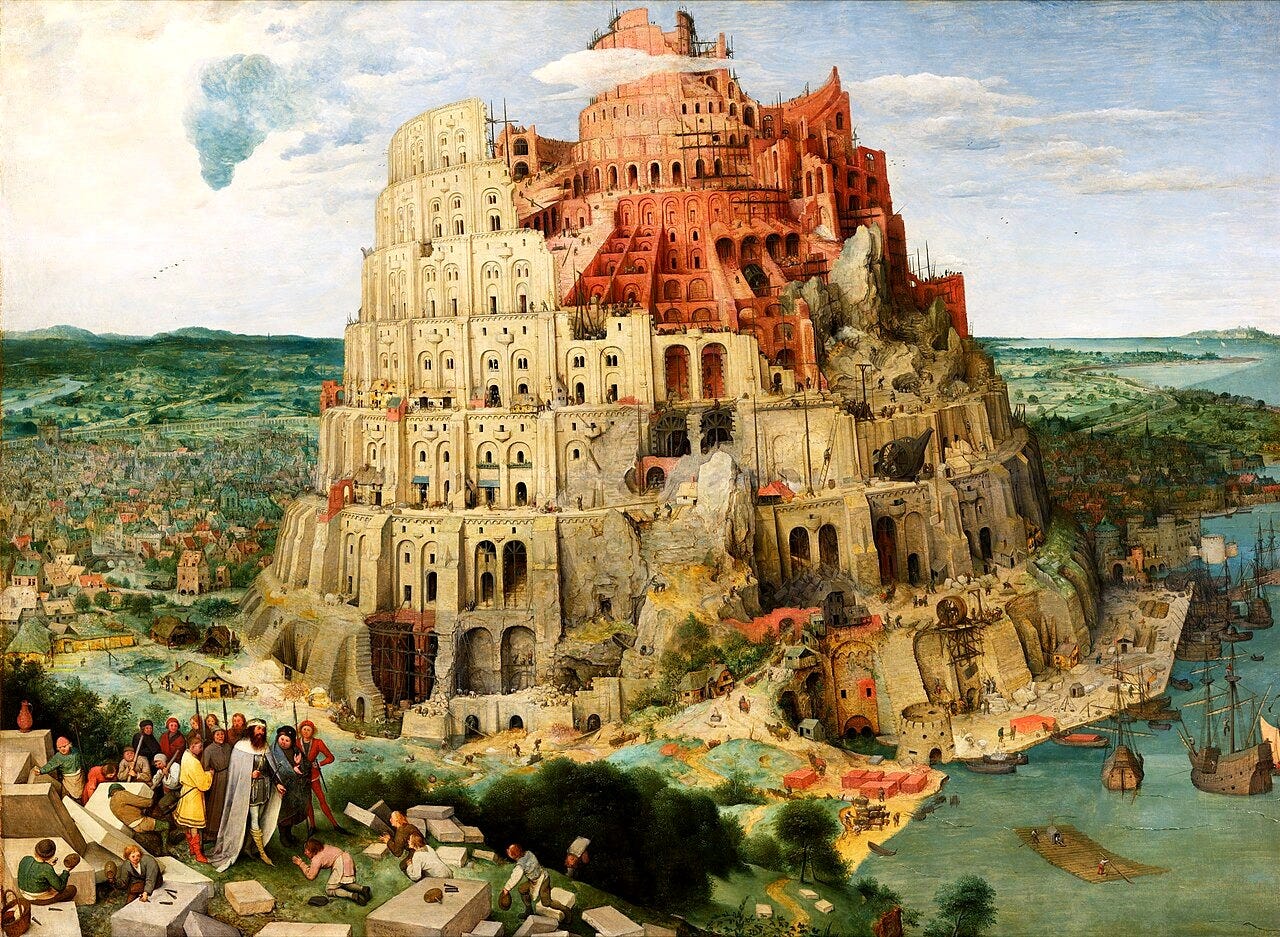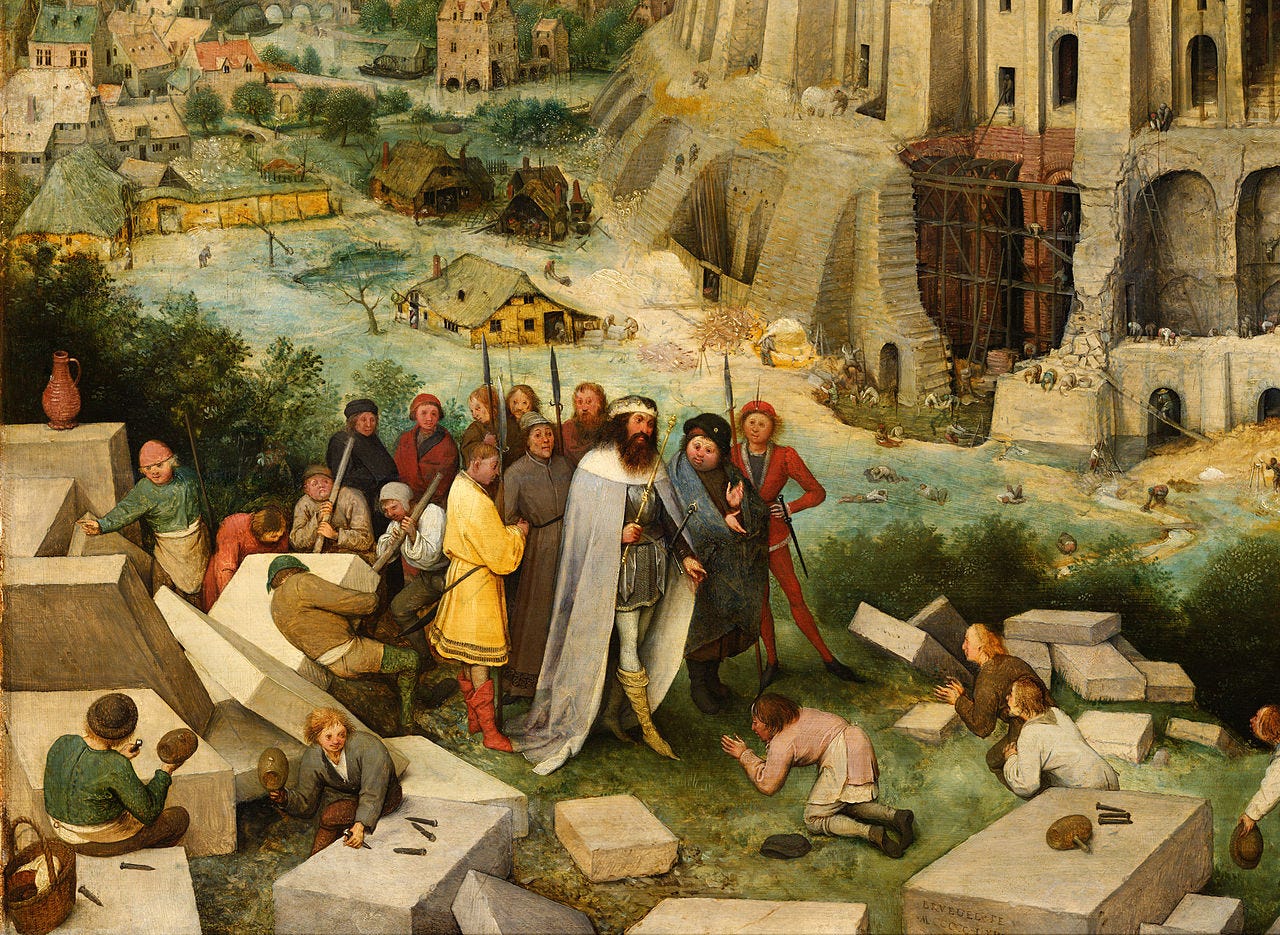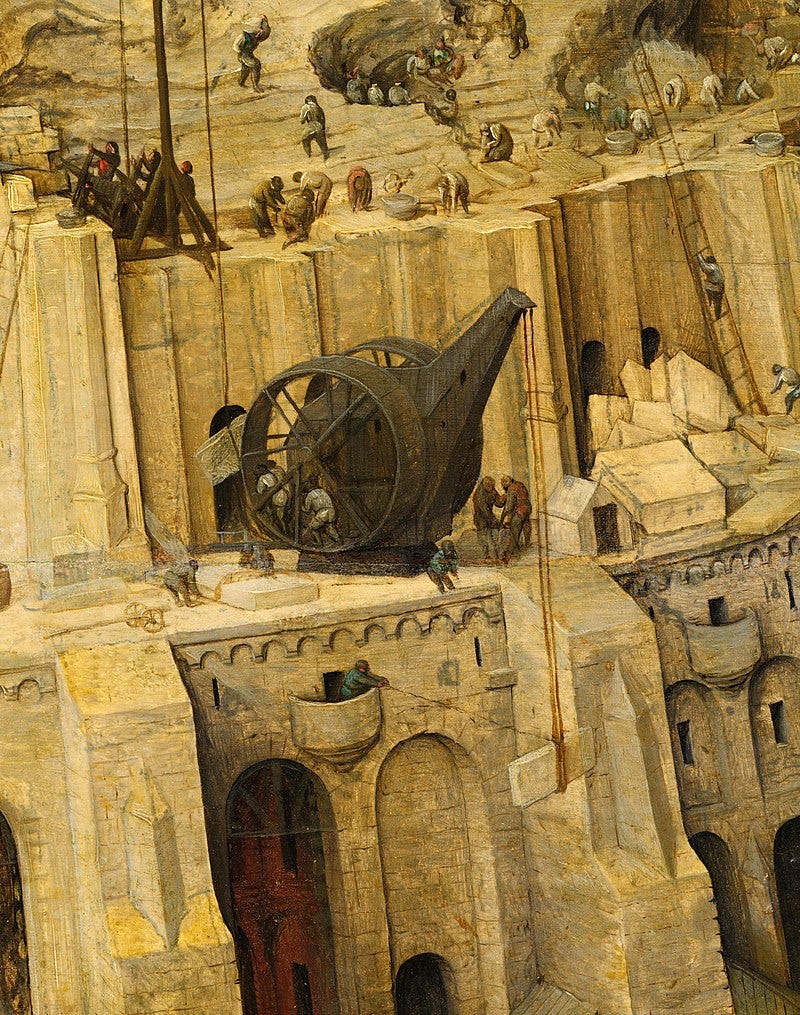Why God Destroyed the Tower of Babel
It's Far More Than Pride...
The Tower of Babel is one of the most known (and most misunderstood), stories from the Bible. Most readers see this story as a warning against pride, which is true, but there’s far more to the narrative than meets the eye.
Babel’s rise and fall has a pattern that reveals essential truths about human nature. It explains what it means to be a “fallen man,” and the greatest temptation that scourges him… but also, it reveals fallen man’s path back to paradise.
Language is the key. The very barrier that divides mankind is ironically that which is key to unifying and returning him to God.
Here then is the hidden meaning of the Tower of Babel, and what it reveals about language, logos, and the soul’s journey home to paradise.
Reminder:
I offer one on one coaching for men, focusing on faith, fitness, and the Great Books. More info here.
Additionally, if you’d like to support my mission of restoring Truth, Beauty, and Goodness to the West, subscribe below!
United in Rebellion
The Tower of Babel story takes place in Genesis 11, some time after the great flood.
Immediately, the chapter begins with an evocation to language:
“Now the whole earth had one language and few words.”
This introduction suggests unity of tongue and culture, which sounds innocent enough. Unified cultures imply peace and solidarity.
The narrative continues:
“And as men migrated from the east, they found a plain in the land of Shinar and settled there. And they said to one another:
‘Come, let us build ourselves a city, and a tower with its top in the heavens, and let us make a name for ourselves, lest we be scattered abroad upon the face of the whole earth.’”
It’s these lines that reveal mankind’s motives are dangerous, if not evil. They desire to build a tower to the heavens so that “they can make a name for themselves.” In other words, they desire to be “like gods,” such as the serpent whispered in the Garden of Eden.
The people’s desire to reach Heaven is not wrong in itself — in fact, God wants his people to unite with him in Heaven — but in this case, the people don’t want God. They’re a prideful people, seeking to become self-sufficient while divorced from God.
How will God react to this?
Of course, he’ll thwart their plans, but his language is very interesting…
The Proto-Authoritarian State
God naturally disapproves of the Tower of Babel, but his motive is not due to jealousy nor blind wrath.
He states:
“Behold, they are one people, and they have all one language; and this is only the beginning of what they will do; and nothing that they propose to do will now be impossible for them. Come, let us go down, and there confuse their language, that they may not understand one another’s speech”
It’s strange that God declares “nothing will be impossible for them.” At this point, they’ve merely built a tower — so why are they accused of omnipotence?
God is doing far more than emphasizing their engineering prowess. His declaration is actually an echo of Dostoevsky’s famous dictum that “without God, anything is permitted.” Given that mankind has sought to make a name for themselves, and abandon God, they’ve donned the ethos of a proto-authoritarian state. They are unified, technologically advanced, but morally decadent (if not empty). In other words, they’ve donned the same dystopian spirit you might find in Brave New World, or 1984.
Stunningly then, God didn’t destroy the Tower out of jealousy, but out of mercy. He was saving mankind from the void and terror of a post-moral society, “beyond good and evil,” where anything is permitted. After all, the death of morality is but the death of man.
Yet there’s another piece to the Tower of Babel. The story doesn’t end in disunity and scattered tongues. God gave man a solution too — a means to make a true name for themselves in the Heavens for eternity.
The solution is found in Scripture, but not where you’d expect it to be…





